Advertisement
Bostonian Wins Caldecott Honor For Biography Of Civil Rights Hero Fannie Lou Hamer
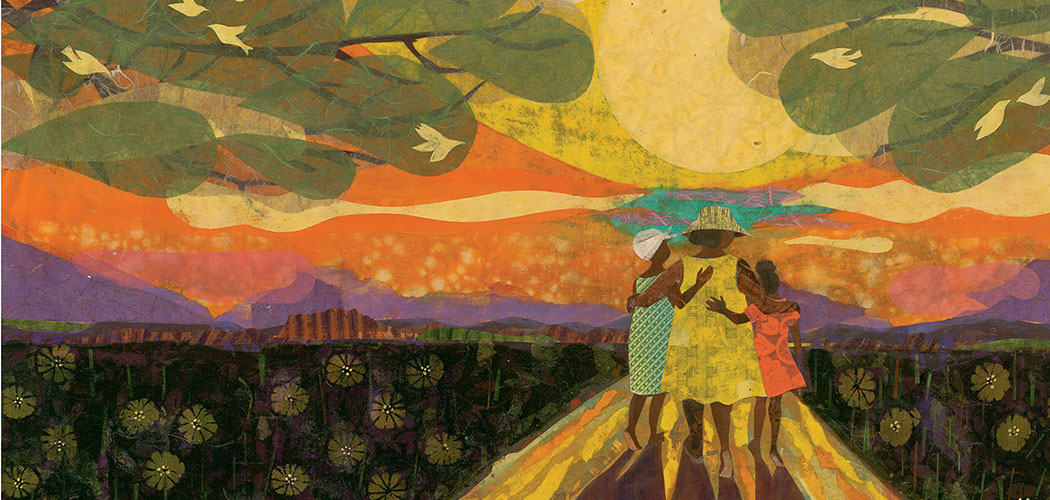
This week, Roxbury artist Ekua Holmes’ first children’s book, “Voice of Freedom: Fannie Lou Hamer, Spirit of the Civil Rights Movement” won a Caldecott Honor as a runner up to the Caldecott Medal, the top prize for children’s picture books in the country.
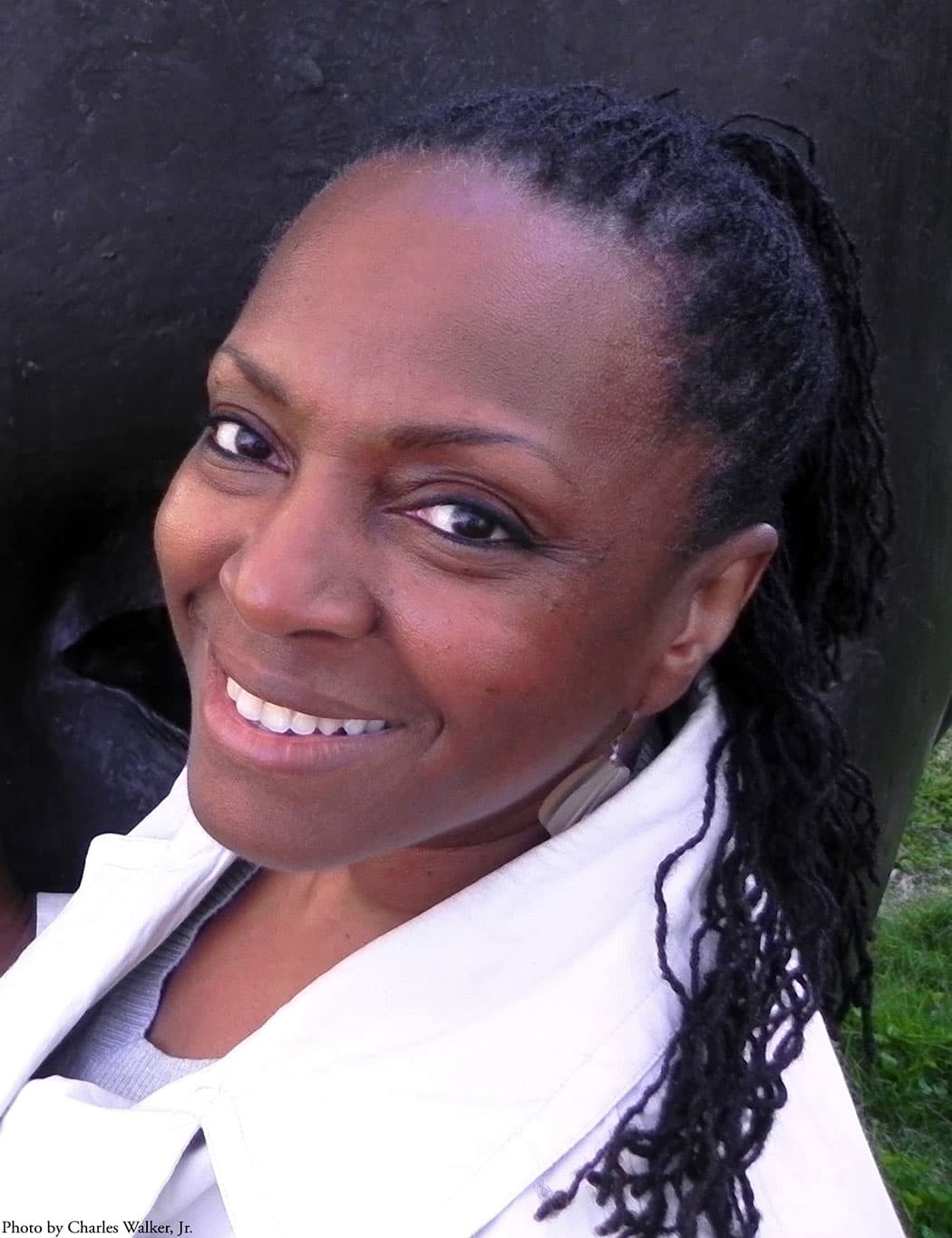
“It’s just unbelievable,” says Holmes, who illustrated the book, which was authored by Carole Boston Weatherford of North Carolina (they’ve spoken by phone, but have yet to meet) and put out by Candlewick Press in Somerville, one of the most prestigious children’s book publishers in the country. “You see all the flaws in your own work. You think, ‘This is crap.’ And the world thinks something different. You have to go with what the world thinks. It’s healthier.”
It’s been a good year for the 60-year-old Boston native, who since 2011 has run Massachusetts College of Art and Design’s Sparc! artmobile, which offers roving community art workshops, and since 2011 has served on the Boston Art Commission, which oversees city public art projects. This time a year ago, her artwork shot to national attention when it was showcased as the Google “Doodle” — the image that appears as part of Google’s name on the search site’s homepage — for Martin Luther King Jr. Day. She depicted King, arm in arm with fellow Civil Rights activists during the historic 1965 voting rights march from Selma, Alabama.
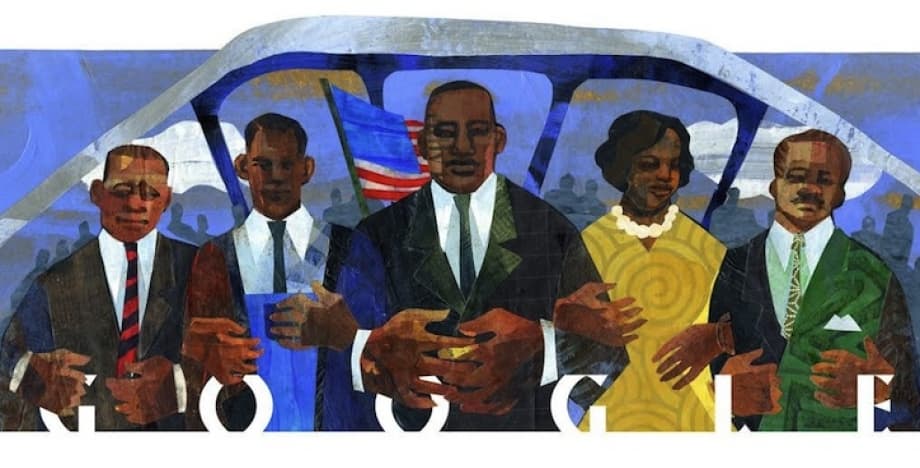
How did these opportunities come her way? “They both said the same thing,” Holmes says. “They said they found me somewhere on the Internet.” It’s like a miracle, or a punchline — Google approaches you out of the blue to offer you work and the mega-search-engine company says it found you on the Internet.
“It’s very unusual. And it’s been very intense for the past two years,” Holmes acknowledges. “There are no overnight successes. Most of the people we think, ‘Where did they come from?’ We just didn’t know they were working.”
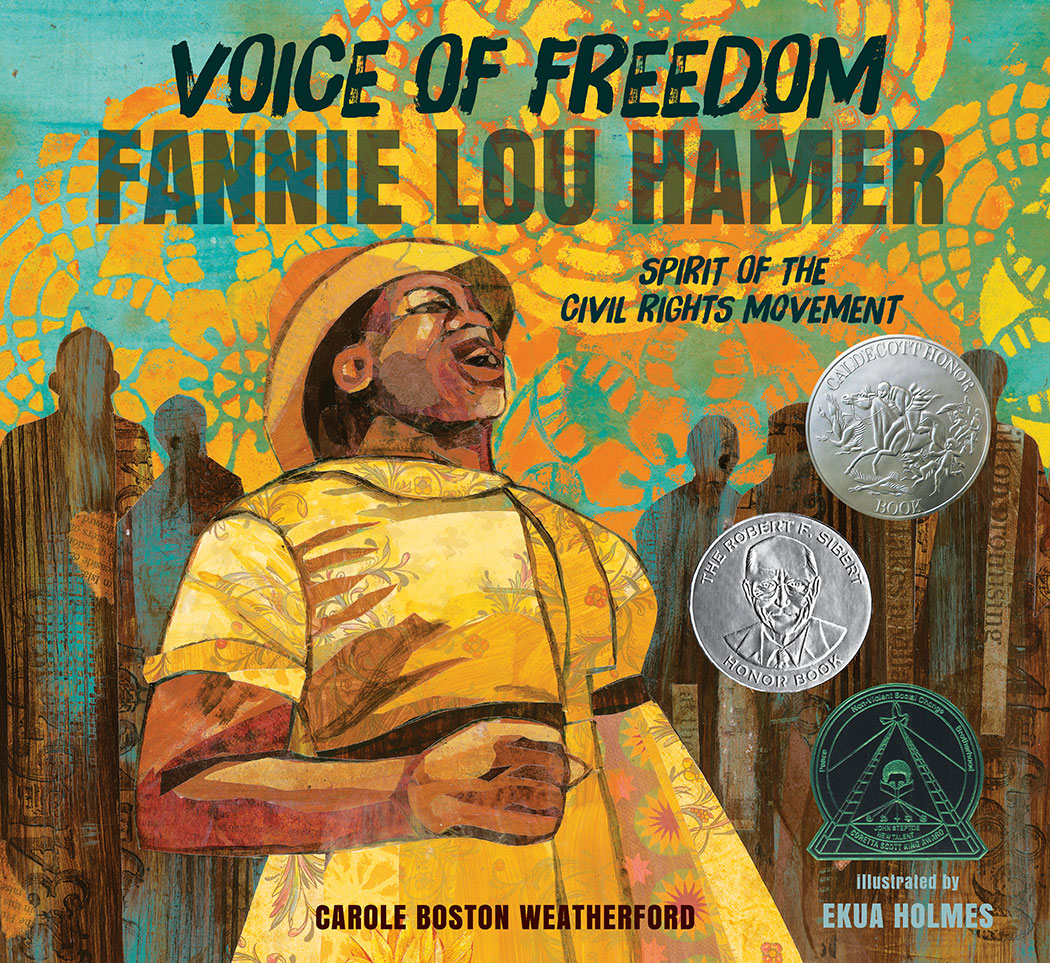
Candlewick, Holmes says, approached her out of blue a couple years back because they were interested in her art. Months after a studio visit, she was invited to illustrate the biography of Hamer for children. “I thought, ‘Oh, you’re kidding,’” Holmes says. “I thought, ‘This has got to be my project because I love Fanny Lou Hamer … her speaking truth to power.’”
Holmes describes “Voice of Freedom” as “How one little girl understood something was wrong at a very young age and she looked for opportunities throughout her life to make things right.”
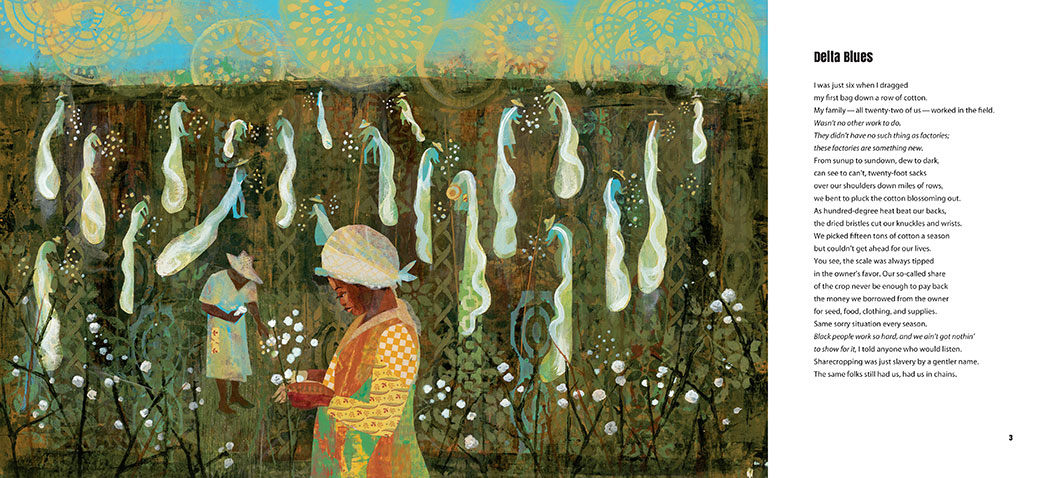
Holmes illustrates the biography with paint plus cut and torn paper (sheet music, maps, patterns). People are stylized, colors are heightened (in this particular case harmonies of yellows, browns and greens). There are echoes of patchwork quilts and sunlight glowing through stained glass. “It makes me see another way that art is powerful,” Holmes says of making children’s books. “There is this saying that ‘Art saves lives.’ It sounds over the top, but I believe it’s true. … This is another avenue for visual arts to influence teachers, students, parents.”
“Voice of Freedom” tells how Hamer was just a little girl when she started working in the family business of raising cotton as sharecroppers. It speaks about being cheated by the plantation owner, about poverty, about racism in Jim Crow Mississippi. Then in 1962, Hamer joined a voter registration drive as part of the Civil Rights Movement.
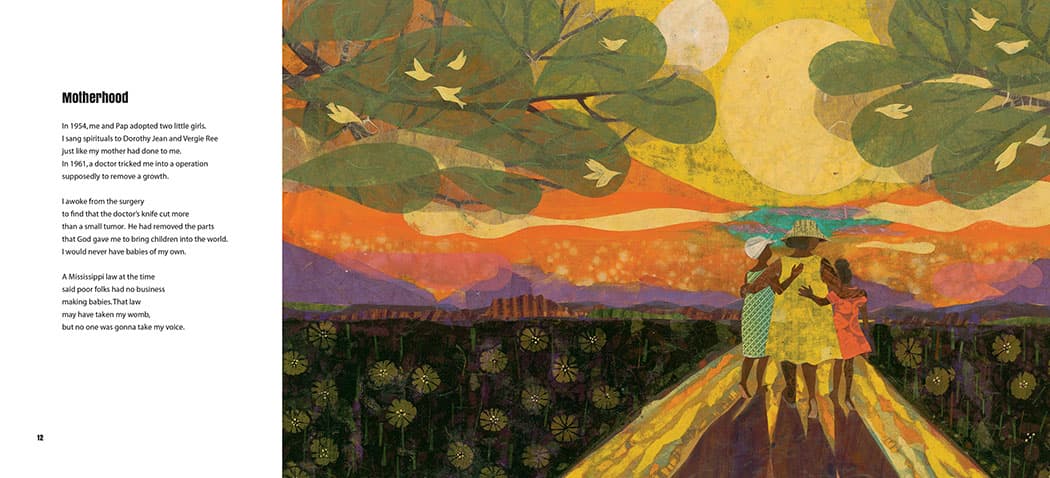
“I guess if I’d had any sense, I’d a-been a little scared, but what was the point of being scared. The only thing they could do to me was kill me and it seemed like they’d been trying to do that a little bit at a time ever since I could remember,” the book says in Hamer’s voice.
The voting rights activists were harassed by police, who only allowed two from their group into a courthouse to take a rigged literacy test. Afterward, Hamer was forced out of her home and off the farm by the plantation owner for trying to register to vote. The following year, she was one group of activists arrested after a literacy workshop and savagely beaten under police auspices. A historic moment of the 1964 Democratic Convention came when Hamer took to the podium to tell this story. She spent the rest of her life pushing for civil rights and equal opportunity for African-Americans, including running for office (unsuccessfully), starting a Head Start program and helping people get government housing loans.
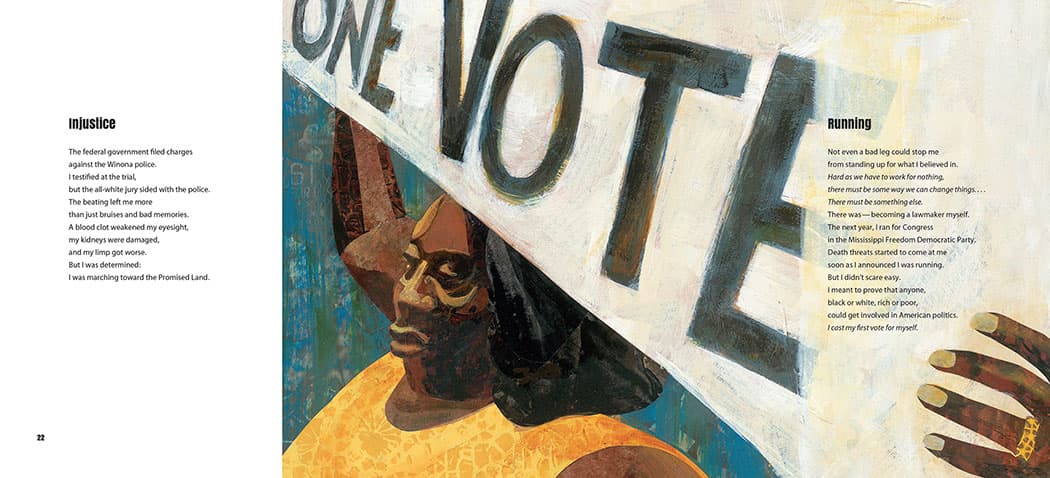
“She offers an example of commitment and fortitude and gracefulness. She wasn’t a hateful woman. She wasn’t operating from a place of hate. She was operating out of love,” Holmes says. “She had a lot of ideas. But she wasn’t just a thinker, she was a doer.”
What’s up next for Holmes herself? She’s illustrating another book for Candlewick, a collection of poetry.
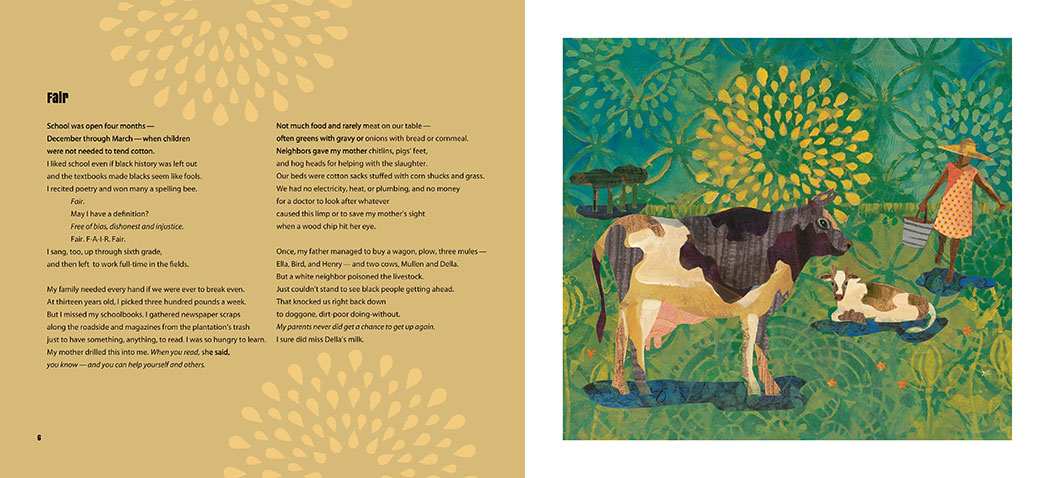
Discuss this article with Greg Cook, co-founder of WBUR's ARTery, on Twitter @AestheticResear or on the Facebook.
